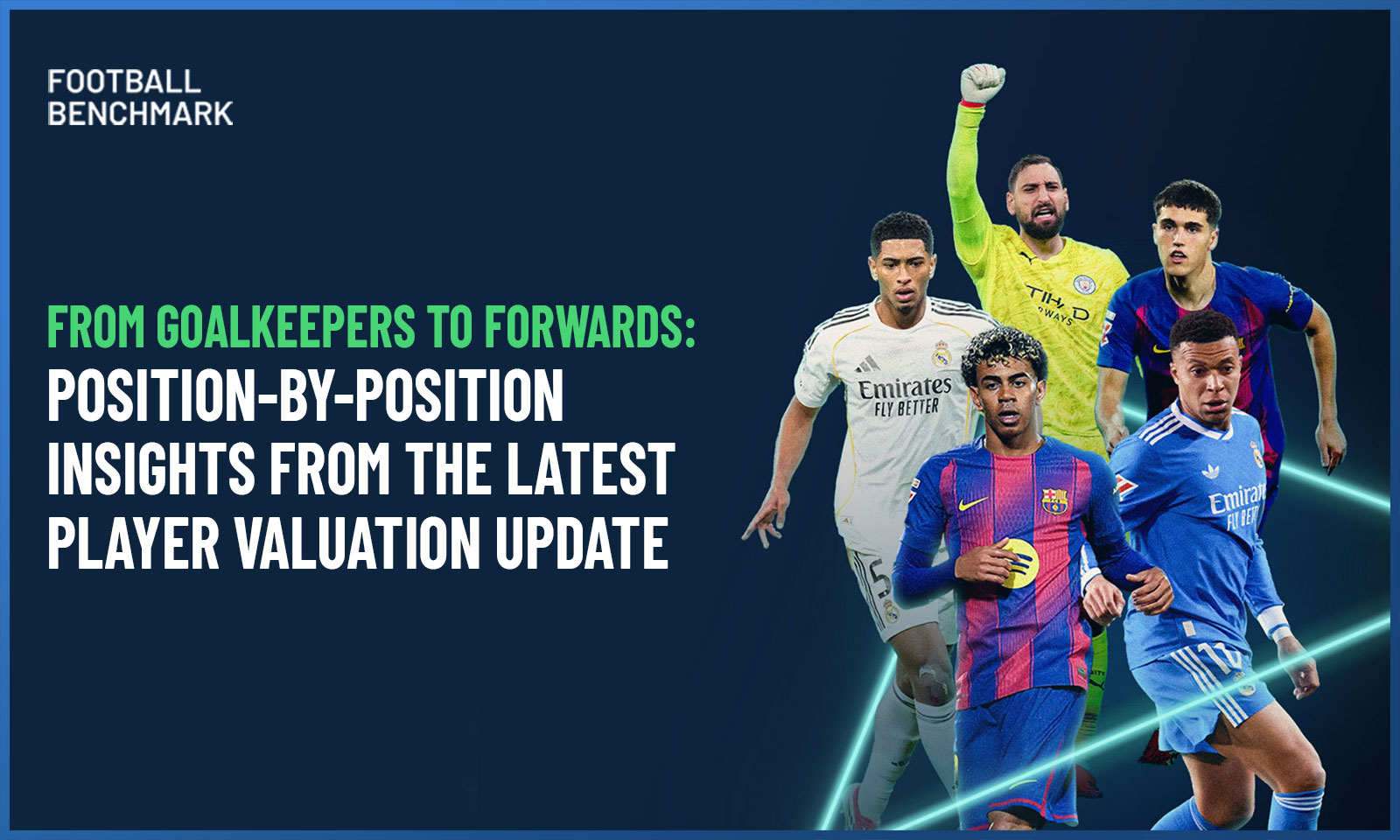
Article by Francesco Dell’Aquila | Football Benchmark
European football’s investment landscape in 2025 reflects a maturing market, with global capital continuing to flow into the game through a broader mix of strategic acquisitions, growing multi-club networks, and investment activity across all tiers of the pyramid. Between January and October 2025, Football Benchmark’s Club Transaction database recorded 76 acquisitions involving clubs across all levels of the European game, based on tracked transactions known to us and publicly available information. Of the transactions with available information on the acquired stake, 72% were majority acquisitions, while 28% involved minority investments.
The activity observed this year points to a market in evolution. Established investment hubs such as England and Italy continue to lead in volume, yet growing interest in lower divisions and multi-club networks signals a widening scope of opportunity. US investors once again represent the largest share of foreign-led transactions, consolidating their position as a central driver of football ownership globally, while institutional funds and private equity groups are becoming increasingly prominent in shaping the sector’s next phase.
This analysis reviews the key developments across football M&A in 2025, highlighting the main target markets, the origins of investors, the year’s most significant reported transactions, as well as looking at the growing reach of activity beyond Europe and in the women’s game.
Key target markets
England led Europe in deal activity, confirming its position as the continent’s most attractive football investment market. A total of 20 transactions were recorded, accounting for more than a quarter of all European deals tracked. While the Premier League continues to draw investment, activity extended deep into the lower leagues, reflecting the enduring appeal of the English football pyramid to a wide range of investors.
In the Premier League, most transactions involved minority stakes. Everton FC welcomed new investors, Brentford FC sold a 10% stake to Gary Lubner and Sir Matthew Vaughn in a deal valuing the club at around £400 million, and Brighton & Hove Albion FC received a minority investment from its CEO, Paul Barber. The year’s largest transaction was the 43% sale of Crystal Palace FC from John Textor to New York Jets owner Woody Johnson. Despite the change, the 2025 FA Cup winners remained ineligible for the Europa League under UEFA’s multi-club ownership rules, with Textor also controlling Olympique Lyonnais through Eagle Football Group.
Beyond the top flight, Reading FC, for example, was rescued from financial distress through a takeover by Rob Couhig and Todd Trosclair, while Leyton Orient FC was acquired by American investor David Gandler. Among the growing number of high-profile personalities entering football ownership, Luka Modrić and Snoop Dogg have become minority investors in Swansea City AFC. Notably, around half of this year’s transactions in England involved clubs from the fourth tier or below, with investors ranging from the United States to India and Kuwait, underlining how global interest in English football extends across every level of the game.
Italy followed as the second most active market with 14 transactions. The acquisition of Hellas Verona FC by American private equity firm Presidio Investors was the standout deal, reflecting sustained US interest in Serie A. Serie B activity included AC Monza’s sale by the Berlusconi family and Spezia Calcio’s rapid double ownership change earlier in the year.
Spain and Portugal each recorded eight transactions, confirming their role as established investment destinations for groups owning Premier League clubs. In Spain, Velocity Sport Limited, the ownership group behind Burnley FC, acquired RCD Espanyol and Best Intentions Analytics, which also controls Brentford FC, took over Mérida AD. In Portugal, Lenore Sports Partners joined the shareholding of SL Benfica, while Moreirense FC, CD Tondela and FC Penafiel changed hands as part of expanding multi-club portfolios, joining Black Knight Football (Bill Foley, owner of AFC Bournemouth, among others), Grupo Élite (owners of Racing de Ferrol) and RC Deportivo La Coruña, respectively.
France, amid its challenging broadcasting context, has seen a relatively subdued level of M&A activity compared to other markets. However, it remains an attractive destination for multi-club groups, as illustrated by Blue Crow Sports Group’s expansion with AC Le Havre and its network alongside clubs such as CD Leganés and Cancún FC.
Other non-“Big Five” markets also recorded increased activity. In Scotland, Rangers FC sold a majority stake to Andrew Cavenagh and the San Francisco 49ers, while Tony Bloom added a minority share in Heart of Midlothian FC to his club portfolio. In Poland, KS Cracovia joined Casa Pia AC as part of Robert Platek’s network of clubs, and in the Czech Republic, entrepreneur Michal Strnad acquired FC Viktoria Plzeň. These developments reflect two converging trends: mid-tier European leagues becoming increasingly attractive targets for multi-club ownership structures, and renewed investor interest in clubs competing near the top of these secondary markets, often seen as more affordable yet competitively promising entry points into European football.
Origin of investors
The distribution of investors in 2025 further highlights the global nature of European football ownership. Foreign buyers were involved in 55 of the 76 recorded transactions, equivalent to 72% of all deals tracked.
The United States continued to dominate the landscape, accounting for 28 of those transactions, 51% of all cross-border investments. US activity spanned both majority and minority stakes, driven by a mix of private investors, funds, and multi-club ownership groups expanding their European presence. England (9 transactions), Italy (4), Portugal (3), and Scotland (3) were their preferred destinations.
Behind the US, investors from the United Kingdom, Brazil, and Spain each completed three transactions, while Japan and the Netherlands recorded two apiece. Japanese investors showed particular interest in the Benelux region, including Yanmar’s acquisition of Almere City FC and Kinpoudou Holdings' buying of K Beerschot VA. Other single transactions came from a diversified range of countries, underscoring the increasingly varied origins of capital entering the European football market.
Largest transactions by reported deal value
Among European transactions with disclosed financial details, Crystal Palace FC’s partial sale led at just over €200 million, followed by RCD Espanyol at €130 million. Both values were well below recent peaks, including Everton FC’s 2024 sale at around €480 million, Sir Jim Ratcliffe’s investment in Manchester United FC in 2023 and the takeovers of Chelsea FC and AC Milan in 2022.
Rangers FC ranked third with a transaction worth close to €90 million, marking the highest deal outside the “Big Five” leagues. Other significant deals included Real Valladolid’s 88% sale by Ronaldo Luís Nazário de Lima for around €50 million, and minority investments in Brentford FC, SL Benfica, Hamburger SV, and Heart of Midlothian FC also featured among the year’s top ten.
Activities beyond Europe and in women’s football
While Europe remains the focal point of football investment, 2025 also saw growing deal activity across other regions and in the women’s game.
In North America, transactions reflected the continued maturity of the MLS and Liga MX markets. The Miller family acquired Real Salt Lake, while new minority investments were recorded in Columbus Crew and Austin FC. In Mexico, US-based investment firm Innovatio Capital acquired Querétaro FC from Grupo Caliente, who also owns Club Tijuana. This transaction illustrates how FIFA’s multi-club ownership regulations for intercontinental competitions – such as the Club World Cup, from which Club León was excluded due to shared ownership with CF Pachuca last summer – together with growing domestic pressure, as Mexico plans to ban multi-club ownership from 2027, are driving cross-border portfolio realignment.
In South America, deals included the acquisition of Colombian club La Equidad by a consortium featuring Wrexham AFC’s owners, Ryan Reynolds and Rob McElhenney, and an investment in Deportivo Cali by IDC Network. In Saudi Arabia, significant transactions under the national privatisation strategy were recorded in July: the sale of Al-Kholood Club to American investor Ben Harburg and the acquisitions of Al Zulfi SC and Al-Ansar FC by local investors. Additional deals are expected as the programme continues to advance.
M&A activity in women’s football also accelerated during 2025. Alexis Ohanian invested in Chelsea Women, Ballard Capital acquired HB Køge Women, and Mercury 13 expanded its portfolio with the purchase of Bristol City FC Women, adding to its ownership of FC Como Women. Additional transactions included the takeover of Montpellier HSC Féminines by Crux Football and a minority investment in Aston Villa FC Women by Marc Zahr.
These developments point to a widening geographical and structural scope of football investment, themes that will be explored in future Football Benchmark analyses.
A more mature and globally connected investment landscape
European football’s investment landscape in 2025 reflects a market entering a more mature and diversified phase. The volume of transactions remains relatively stable, but recent deals demonstrate a broader mix of minority investments, multi-club expansion, and lower-tier acquisitions. Investor strategies are becoming more targeted, with growing interest in portfolio building and long-term value creation across the football pyramid and diverse markets.
American investors remain the dominant force in European club ownership, while activity from Asia, the Middle East and Latin America underlines football’s globalisation as an investment asset. Parallel growth in women’s football further signals how capital in the game is deepening and diversifying.
The recent wave of sports-focused initiatives launched by institutional investors, including CVC Global Sport Group, Apollo Sports Capital, and Avenue Sports Fund, signals a sustained appetite for structured investment in sports, particularly within football. Alongside ongoing rumours of transactions such as the prospective sale of Sheffield Wednesday, Fenway Sports Group’s potential multi-club project, and Apollo Global Management’s reported interest in Atlético de Madrid, the coming year is likely to bring continued momentum across the industry.
Football Benchmark continues to support investors in identifying and assessing opportunities across the football industry, whether entering the market for the first time or expanding existing multi-club portfolios. We offer comprehensive transaction advisory services, including due diligence, valuation, and strategic guidance for investors, while also assisting clubs in preparing and managing the sale process.




